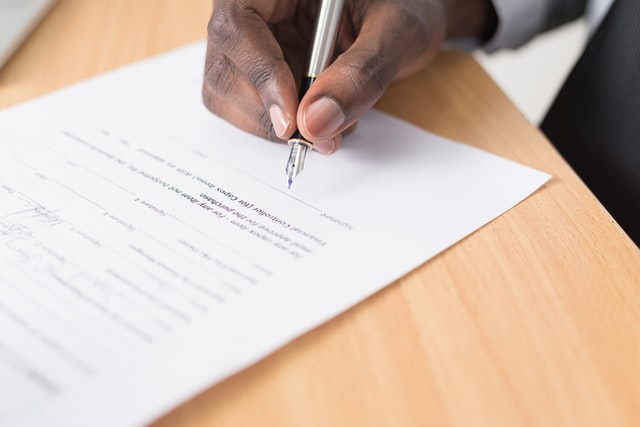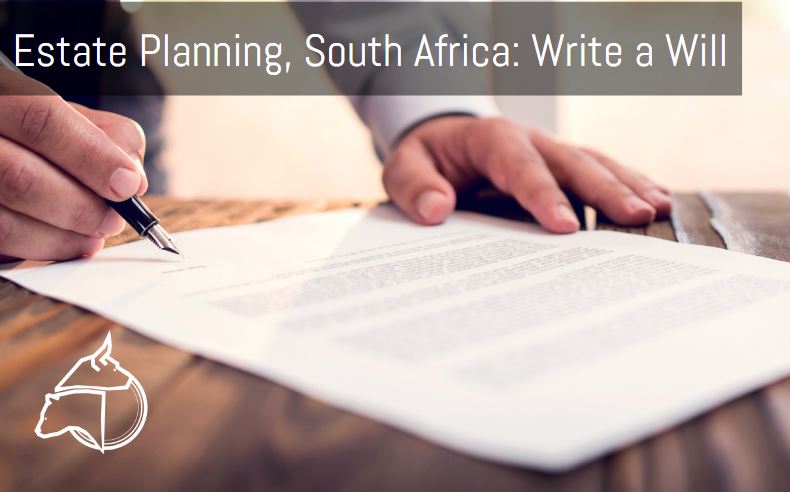The global pandemic has made plenty of people aware of their own mortality. Many of us have caught ourselves thinking of what would happen to our loved ones if we passed away. Would they be alright? Would they be financially secure?
These thoughts can be the start of the process of estate planning. By looking to the future, we can secure a legacy for our families and our businesses.
In this post, we’ll look at the process of writing a will, what happens if you don’t draft one, and how a will relates to estate planning in South Africa.
What Is a Will?

According to South African law, any person has the freedom of testation. You can plan to distribute your estate how you wish. This means that you can decide how your assets will be dealt with when you die, as long as it doesn’t go against the public interest.
Writing a will enables you to nominate an estate executor. This is the person who will act on your behalf and manage your assets after you die. You can also nominate a guardian for your children if they are minors.
Do I Need to Write a Will?

No, you don’t, but we advise that you do.
If you pass away and you haven’t written a will, the Intestate Succession Act takes effect. This piece of legislation is generally quite fair, ensuring that your estate and assets are distributed between your spouse and children.
If you don’t have a spouse or children, your assets will be split between your blood relatives according to a hierarchy: your parents, then your siblings, then your other relatives. If you decide not to write a will, it’s your responsibility to get familiar with the Intestate Succession Act.
According to this Act, your asset distribution can be influenced by customary or religious law. This is one of the reasons we suggest every individual should draft a will. They can ensure their legacy and assets are left in their manner of their choosing.
If you pass away without leaving a will, problems can arise:
- Your assets may not be passed on to the person of your choice.
- There can be extra and unnecessary costs for your loved ones.
- There can be a lengthy time period before an executor can be appointed.
- This can cause misery and conflict in your family due to the lack of clear instructions about how to deal with your estate.
Writing a Will: Requirements

Below, we’ll take a look at the requirements for drafting a will.
Who can draft a will?
Anyone who is of sound mind and is over 16 years of age can write a valid will. Although, we do recommend you get help from the experts.
Asking an attorney to draft your will is a good move as they are qualified in law and can help you with potential problems that may arise in the drafting process. Attorneys also have the legal knowledge to ensure that your will is valid and fulfils your wishes.
We also recommend seeking the expertise of a financial advisor. By asking your financial advisor for insight, you can take action to secure your legacy for the future. By consulting the experts in the process, you engage in considered and effective estate planning.
What makes a will valid?
For a will to be valid, it needs to:
- Be in writing
- Have been signed on every page and at the end by the person writing the will
- The signature must be conducted in front of two witnesses (older than 14 years and they cannot benefit from the will)
Signing a Will: What You Need to Know

There are a few things you need to consider when signing a will. Firstly, you cannot sign your will and then email it to your witnesses to add their signatures. The will writer (testator) and the witnesses have to all be present at the signing of the document.
Your witnesses cannot be benefactors, the appointed guardians, or the executor of the will. Also, interesting to note is the fact that your witnesses don’t need to read the will. Their primary function is to witness you signing the will.
Estate Planning and Wills

Estate planning is inspired by your life. These plans usually include a will and other documents that act as a map for fulfilling your wishes, before and after death.
Effective planning includes structuring of estate duties so taxes are minimised and ensuring the protection of your heirs’ inheritances. Estate planning is not restricted to life policies. All your assets are taken into account by your advisors, such as wills and trusts, marital contracts, and income tax.
Estate planning is essential to protect those you love because, without a plan in place, the negative consequences could impact them for years to come.
For more information about estate planning and wills, feel free to get in touch:
+27 11 839 2302
See our estate planning service here: https://maysure.co.za/services/

